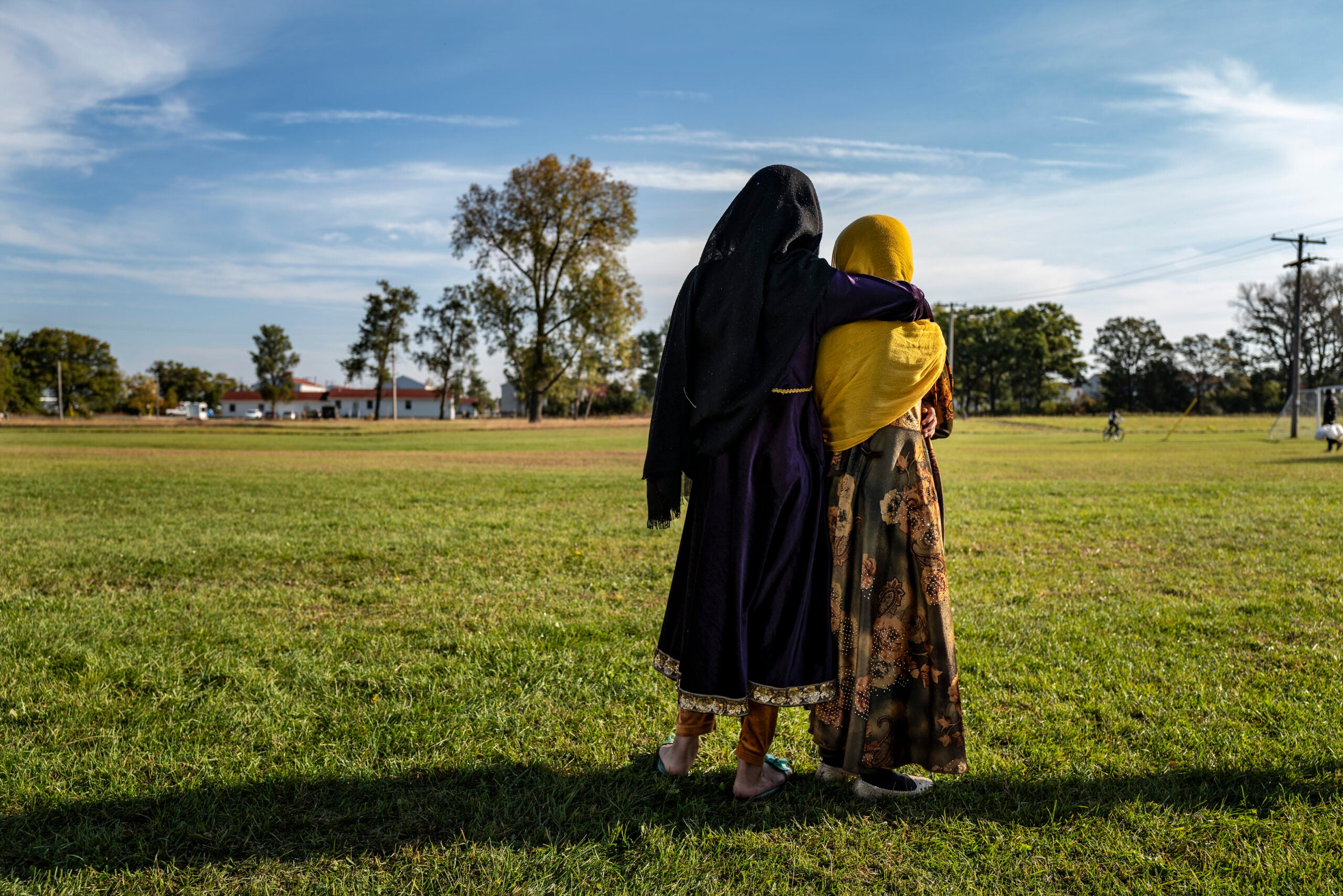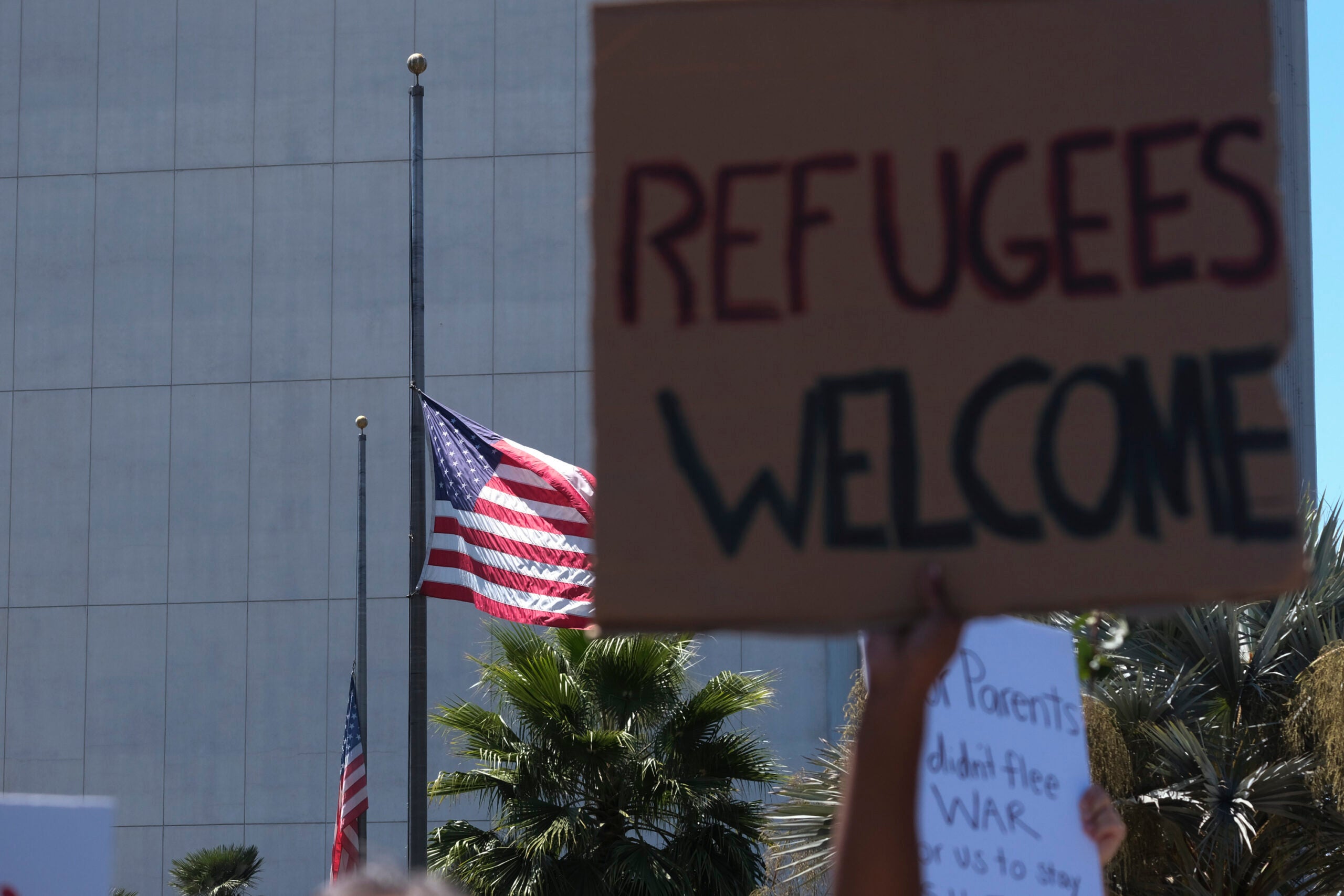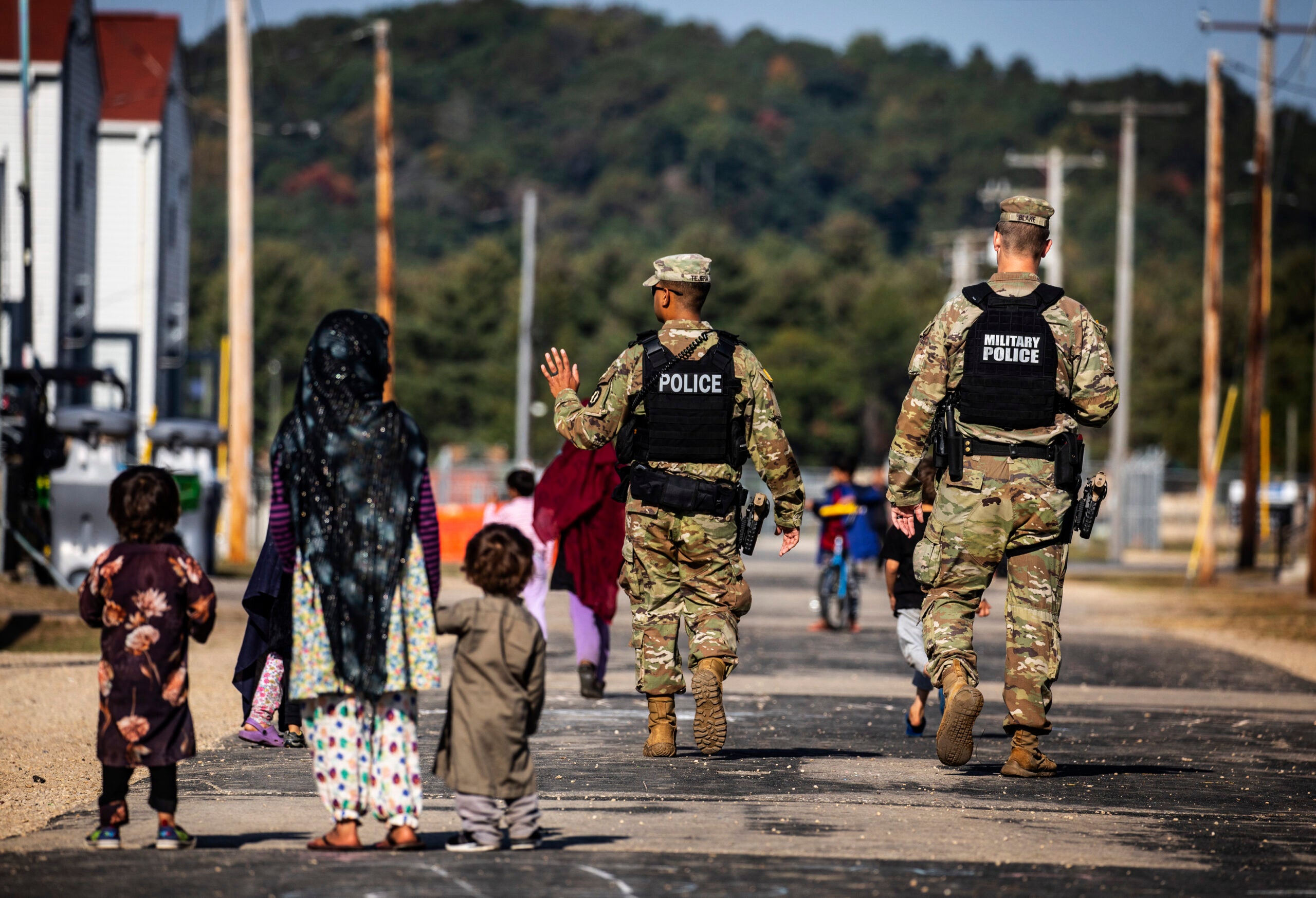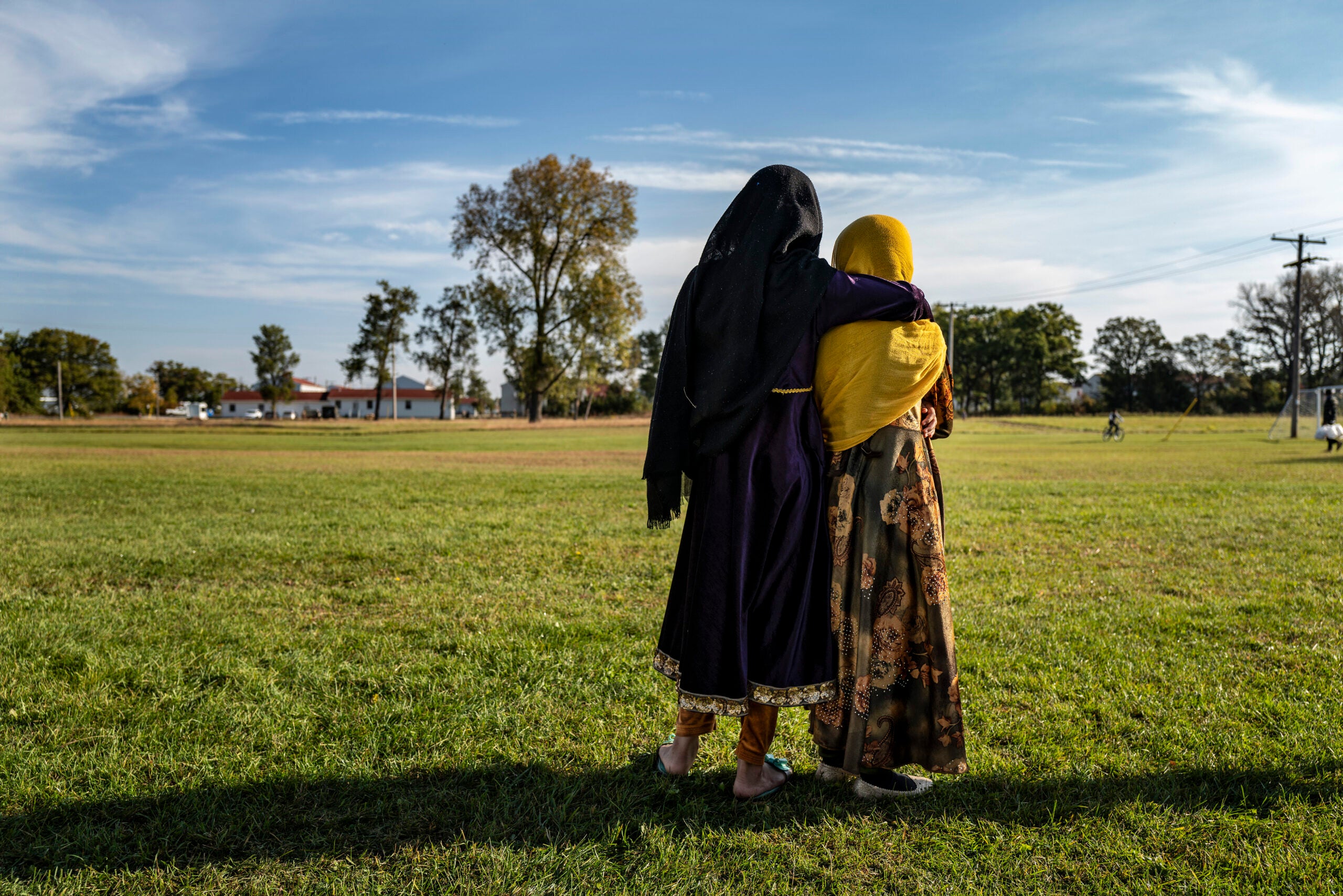A series of executive orders from President Donald Trump late last month have set Wisconsin refugee resettlement agencies scrambling to continue to provide services.
Last month, President Trump signed a series of executive orders that suspended funding nationwide to organizations that help refugees with housing, job placement and other resettlement needs. An analysis from the Associated Press has found this order is set to affect more than 26,000 refugees nationwide.
Kai Gardner Mishlove is the executive director of Jewish Social Services of Madison. Her organization was founded more than 80 years ago to aid Jewish refugees following World War II. Today, it works to aid a wide range of refugees throughout southcentral Wisconsin.
Stay informed on the latest news
Sign up for WPR’s email newsletter.
Gardner Mishlove told WPR’s “Wisconsin Today” that her agency was told it will not be reimbursed with federal funds for any refugees effective Jan. 24.
“So if we have someone that we brought in on Jan. 23, we’re responsible for the first 90 days to provide their housing, to provide their food, to assist them with all of the case management that’s necessary for successful acclamation,” she said. “We have a moral obligation to do that, and so we have to rely on other sources of funding to provide services to the clients that we’ve brought in.”
Becoming a refugee in the United States requires a series of applications, screening and interviews that can take upwards of two years to complete, according to the American Immigration Council. The council found that refugee admissions declined sharply under the first Trump administration, partially due to the implementation of an “extreme vetting” process that left some refugees stranded in dangerous locations.
Sheila Badwan is the executive director of the resettlement agency Hanan Refugees Relief Group in Milwaukee. It started as a volunteer effort in 2016 and provides a variety of aid to new refugees, from paying rent to helping new arrivals find jobs.
Badwan said agencies like hers are a vital resource for refugees.
“We work with a lot of Afghan refugees,” she said. “These are refugees that worked alongside our government. And there is definitely real fear.”
She told the Milwaukee Journal Sentinel last week that she’s had to lay off several of her staff — most of whom are refugees themselves.
“We have been doing this work for so long, we know what the best practices are.”
Kai Gardner Mishlove
Gardner Mishlove said the freeze in federal funding is harming the ability of agencies like hers to plan more than one day at a time.
“It’s very difficult to plan and to strategize when from day to day, new orders come out or new directives come out,” Gardner Mishlove said. “We have been doing this work for so long, we know what the best practices are. That’s what we’d like to focus on, instead of crisis management.”
Gardner Mishlove said the freeze in federal dollars could affect more than just refugees.
“Refugee resettlement is our largest department, but not our only department,” she said.
“We have been providing services for over 85 years to various vulnerable populations, refugees and immigrants. But also seniors, people who are at risk of homelessness, folks who are dealing with behavioral health challenges, addiction challenges,” she continued. “This affects the entire agency because we provide integrated services.”
Badwan said her focus has been on trying to support recent refugees in the best way possible.
“Me and [Gardner Mishlove] have talked many days,” Badwan said. “Every day now, we are on the call to see how we can come up with strategies to help our newest neighbors. … It’s devastating right now.”
Wisconsin Public Radio, © Copyright 2025, Board of Regents of the University of Wisconsin System and Wisconsin Educational Communications Board.




